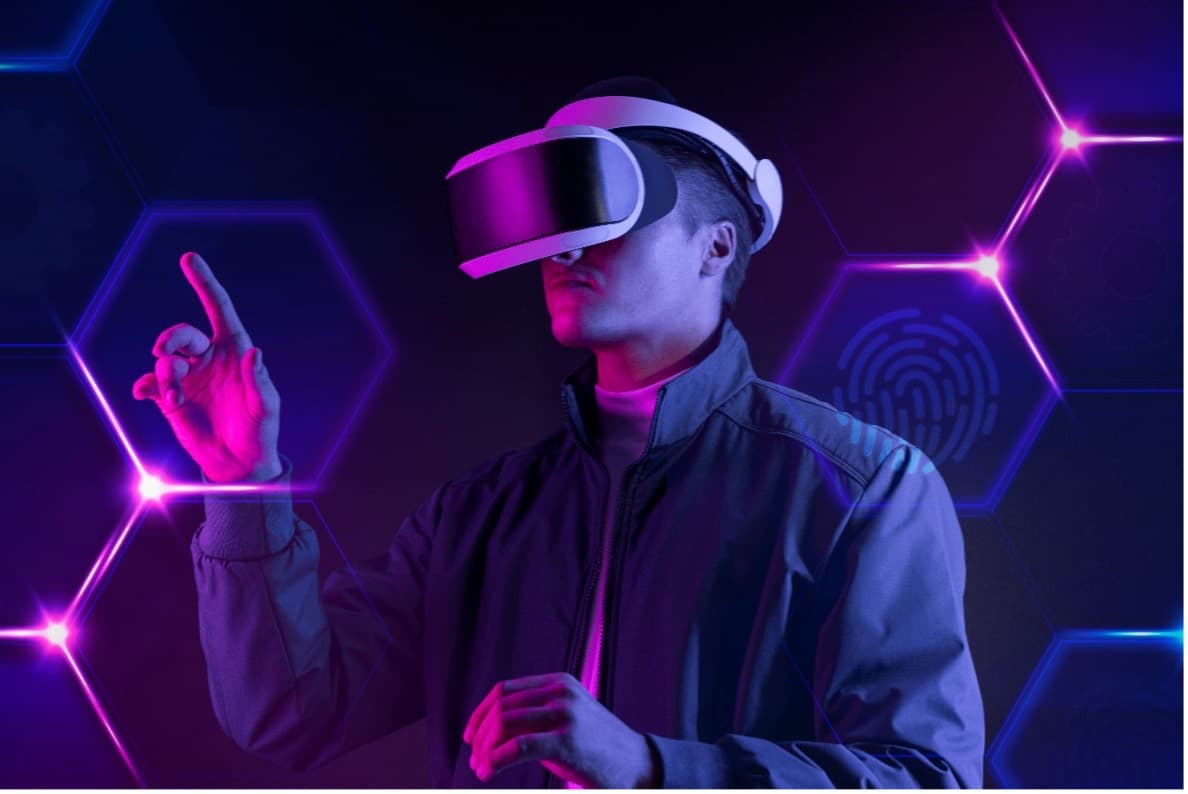The first university was founded in Bologna in 1088. Almost a millennium has passed since then. Regarding positive sciences, a lot has changed in academia thanks to the technological progress of the last century. Moreover, the pandemic forced us to take a brand-new perspective on the educational system. Although it seemed like all levels of education were catching up with technology, the pandemic let us re-evaluate the efficiency of remote/digital education. This gave birth to many educational strategies such as virtual reality laboratories.
So, what are the beneficial qualities of virtual reality (VR) laboratories? What makes them so special? Let’s explore 10 of them together!
1) Reduced economic and time cost:
Laboratory equipment and sample preparation often require both manual labor time and money. Virtual reality laboratories cut back on both of these expenses as samples come readily available, and there’s no time or money loss that can be caused by a broken equipment. Hence, it increases the accessibility and availability of empirical learning systems. [1]
2) Green/eco-friendly alternative:
A greener future is a mutual goal in today’s world. To achieve this goal, we need to minimize chemical/electronic waste. Thereby, we could help protect the environment by decreasing chemical pollution. Hence, virtual labs could maximize the purity of our natural resources for future generations.
3) Flexible learning environment:
You don’t need to be at a specific place at a specific time. You can do it at your own pace, anywhere, at any time. Imagine conducting a virtual experiment as homework. You can work on it on your own or with the help of someone. You just need a stable internet connection and a laptop.
4) Safety:
Dealing with hazardous chemicals, laboratory accidents and health concerns may render some experiments hardly available to teaching laboratories. Yet these kinds of experiments can still provide such great learning opportunities for students. Virtual reality can make it possible to conduct such experiments without any safety issue .
5) Increasing inclusivity:
It can be a great way to include people with disabilities in experiments. In fact, a study shows that people with intellectual disabilities learn better with virtual reality. [2]

6) Providing a clearer perspective on complicated topics:
Some topics cannot be grasped completely solely on an experimental level. Visual cues and simulation techniques could facilitate learning in the virtual environment.
7) Boosting curiosity and self-esteem:
Intriguing the students' curiosity with an interactive environment of a virtual lab may in fact increase the confidence level of students and further pique their interest in scientific endeavors.
8) Instant feedback opportunity:
Students can experience the advantages of fast feedback. Thereby, the potential benefits such as faster learning process can be unraveled.
9) Catching up with the digital world:
As virtual environments such as metaverse would potentially be the new reality of the next era, meeting the expectations of the new generations to come may need coming into contact with it as early as possible. Together with VRLab’s apprehensible experiment modules, this goal becomes easy to attain.
10) Open for development:
There is always room for improvement in virtual reality laboratories. This state-of-the-art approach to education values and encourages feedback so that it can better suit the possible needs of the students and the instructors.
Take a look at all experiments at VRLab Academy and enhance your teaching power with us.
References:
[1] https://doi.org/10.1007/978-3-319-18473-9_15
[2] https://doi.org/10.2196/jmir.1917
[3] https://doi.org/10.3390/ su13020943